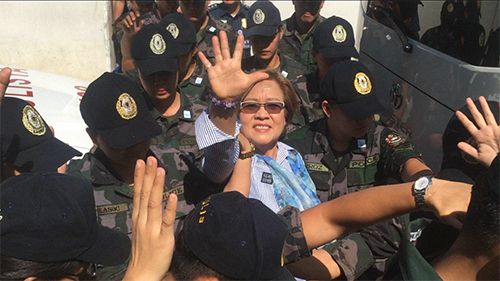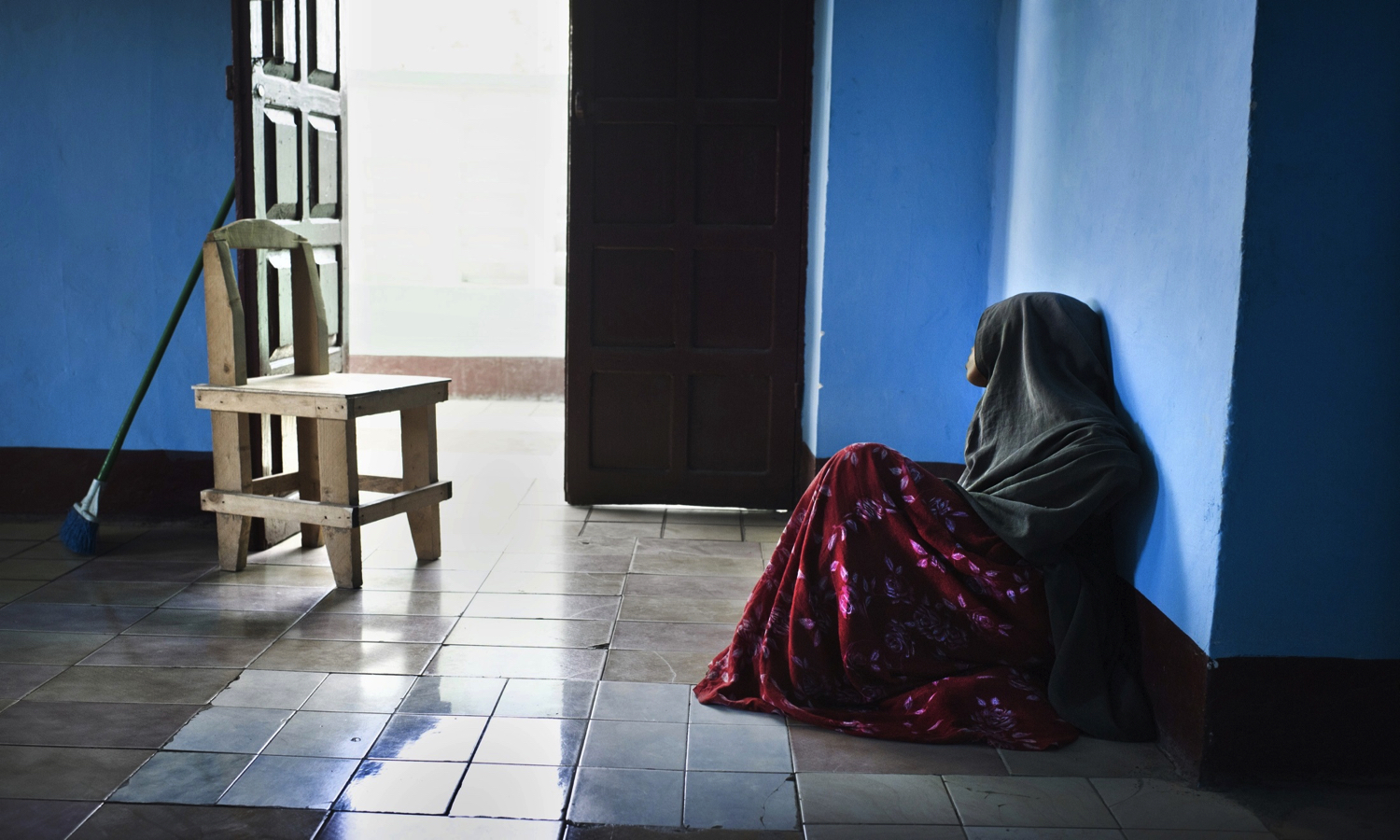The recent signing of the United States’ 2020 budget law drew flak from President Rodrigo Duterte’s administration as it introduced quite a steep price for some: an entry ban to the U.S. for Philippine government officials involved in the detention of opposition senator Leila de Lima, who has been detained at Camp Crame for over two years on alleged drug-related charges.
Saying there was no explicit mention of the incarcerated senator in the law, pro-Duterte blogger RJ Nieto, who runs Facebook page Thinking Pinoy, called the ban “fake as fake news gets” in a Dec. 28 Manila Bulletin column that could have reached over four million people online.
Presidential Spokesperson Salvador Panelo, in coordination with Philippine Ambassador to the U.S. Jose Manuel Romualdez, however, confirmed on Dec. 29 in a radio interview that the entry ban is “true.”
Here are two things you need to know about the prohibition on entry clause in the U.S. 2020 budget law.
Approved 2020 U.S. Appropriations Act includes entry ban on PH officials
The ban on Philippine officials involved in the “wrongful imprisonment” of De Lima — as stated in the report on the U.S. Senate bill on the State Department budget — is covered in the approved U.S. Appropriations Act of 2020, signed on Dec. 20 by U.S. President Donald Trump.
While the Act itself does not expressly mention the ban, section 4 states that the Act’s accompanying explanatory statement will have “the same effect with respect to the allocation of funds and implementation.”
This includes Division G of the statement, which tackles appropriations for the Department of State, Foreign Operations, and related programs. Under this section, U.S. Federal government entities are directed to “comply with the directives, reporting requirements, and instructions” of the reports accompanying the State Department appropriation bills of both the House and the Senate.
U.S. Senate Committee Report 116-126, which accompanies Senate Bill 2583, expressly prohibits entry to:
“…government officials about whom the Secretary [of State] has credible information have been involved in the wrongful imprisonment of…Senator Leila de Lima who was arrested in the Philippines in 2017.”
Source: U.S. Congress, S. Rept. 116-126, Sept. 26, 2019
The entry ban will also be applied to state officials in Turkey, Egypt, and Saudi Arabia proved to be involved in the “wrongful detention” of American citizens, nationals, or locally employed staff of a U.S. diplomatic mission. Apart from de Lima, the statement expressly posed an entry ban to individuals involved in the imprisonment of American Mustafa Kassem, currently detained by the Egyptian government.
U.S. Secretary of State will decide who to deny entry to US of De Lima prosecutors
U.S. Secretary of State Mike Pompeo will decide which Philippine government officials will be prohibited from entering the U.S.
This is in accordance with the Anti-Kleptocracy and Human Rights provisions, or section 7031 of the Department of State, Foreign Operations, and Related Programs Appropriations Act, which states that:
“…officials of foreign governments and their immediate family members who have been involved in significant corruption or a gross violation of human rights (including unjust or wrongful detention) are ineligible for entry into the United States, subject to specified exceptions and waivers.”
Source: U.S. Congress, Department of State, Foreign Operations, and Related Programs and Appropriations Act
The entry ban provision was introduced by U.S. senators Dick Durbin and Patrick Leahy in pursuance of the Global Magnitsky Human Rights Accountability Act, which authorizes the U.S. president to impose sanctions — such as the denial of entry, and freezing of assets in the U.S. — on persons “responsible for extrajudicial killings, torture, or other gross violations of internationally recognized human rights” against individuals in “any foreign country.”
Panelo announced in a press briefing on Dec. 27, a week after Trump signed the U.S. budget law, that the Duterte government has ordered the Bureau of Immigration to deny Durbin and Leahy, whom the spokesman referred to as “imperious, uninformed and gullible American legislators,” entry to the Philippines.
Sources
U.S. Congress, H.R.1865, Dec. 20, 2019
Manila Bulletin, Sen. De Lima, official docs show US entry ban is as fake as fake news gets, Dec. 28, 2019
GMA News, Envoy confirms existence of entry ban vs. PHL officials —Palace, Dec. 29, 2019
Philippine Star, Palace: Provision barring De Lima jailers from US actually exists, Dec. 29, 2019
Inquirer.net, BREAKING: Palace says entry ban of PH officials in US is ‘true,’ Dec. 29, 2019
U.S. House of Representatives, Explanatory Statement submitted by Mrs. Lowey, Chairwoman of the House Committee on Appropriations Regarding H.R. 1865, Dec. 16, 2019
U.S. House of Representatives, Division G – Department of State, Foreign Operations, and related programs Appropriations Act 2020, Dec. 16, 2019
U.S. Congress, S.2583, September 26, 2019
U.S. Congress, Prohibition on Entry, Section 7022 of S. Rept. 116-126, September 26, 2019
U.S. Department of State, Anti-Kleptocracy and Human Rights, 7031c – Transmittal Letter, 2018
U.S. Congress, Sec. 7031 of H.R.3362, July 24, 2017
U.S. Government Information, Section 1261 of Public Law 114-328, Dec. 23, 2016
Presidential Communications Operations Office, Press Briefing of Presidential Spokesperson and Chief Presidential Legal Counsel Secretary Salvador Panelo, Dec. 27, 2019
(Guided
by the code of principles of the International Fact-Checking Network at
Poynter, VERA Files tracks the false claims, flip-flops, misleading
statements of public officials and figures, and debunks them with
factual evidence.
Find out more about this initiative and our methodology.)


